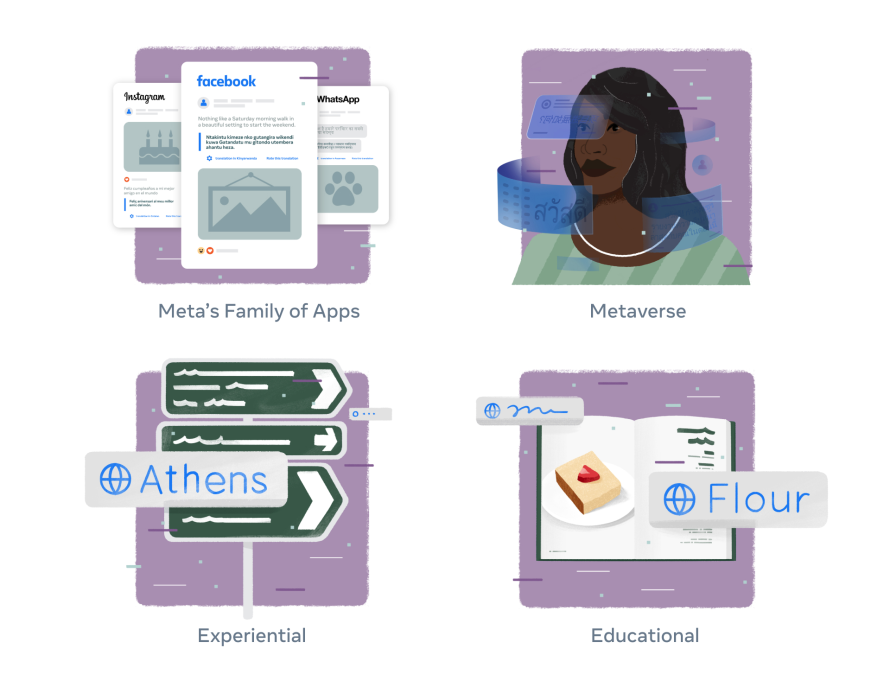As per Meta Official Blog, language has indeed turned out to be the lifeline of this world but high-quality translation tools don’t exist for hundreds of languages. But meta decided to help people connect better today and be part of the metaverse of tomorrow.
Billions of people today can’t access digital content or participate fully in conversations and communities online in their preferred or native languages. This is particularly an issue for hundreds of millions of people who speak the many languages of Africa and Asia.
Meta has announced an AI model which translates 200 different languages with results far more accurate than what previous technology could accomplish.
Also Read: Netflix’s “Hello, Goodbye, and Everything in Between” rom-com knows how to win hearts!
Meta announced: Awards up to $200,000 of grants for impactful uses of NLLB-200 to researchers and nonprofit organizations with initiatives focused on sustainability, food security, gender-based violence, education, or other areas in support of the UN Sustainable Development Goals. Nonprofits interested in using NLLB-200 to translate two or more African languages, as well as researchers working in linguistics, machine translation, and language technology, are invited to apply.
These research advancements will support more than 25 billion translations served every day in Feed on Facebook, Instagram, and our other technologies.
Expanded Translation and Greater Inclusion
A handful of languages — including English, Mandarin, Spanish and Arabic — dominate the web. Native speakers of these vary widely spoken languages may take for granted how meaningful it is to read something in your own mother tongue.
NLLB update will help more people read things in their preferred language, rather than always requiring an intermediary language that often gets the sentiment or content wrong.

This work can also help advance other technologies, like building assistants that work well in languages such as Javanese and Uzbek, or creating systems to take Bollywood movies and add accurate subtitles in Swahili or Oromo.
As the metaverse begins to take shape, the ability to build technologies that work well in a wider range of languages will help to democratize access to immersive experiences in virtual worlds.
Learn more about this as it will help to make the metaverse accessible to more people around the world


